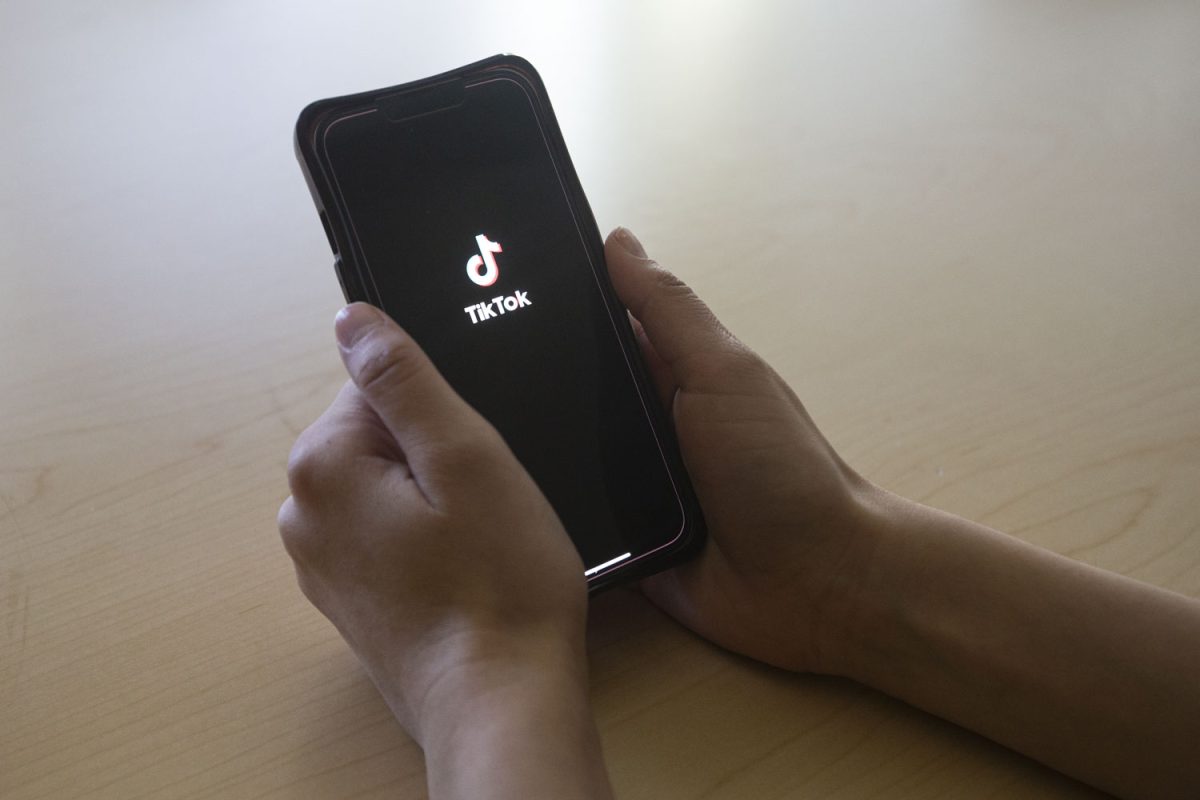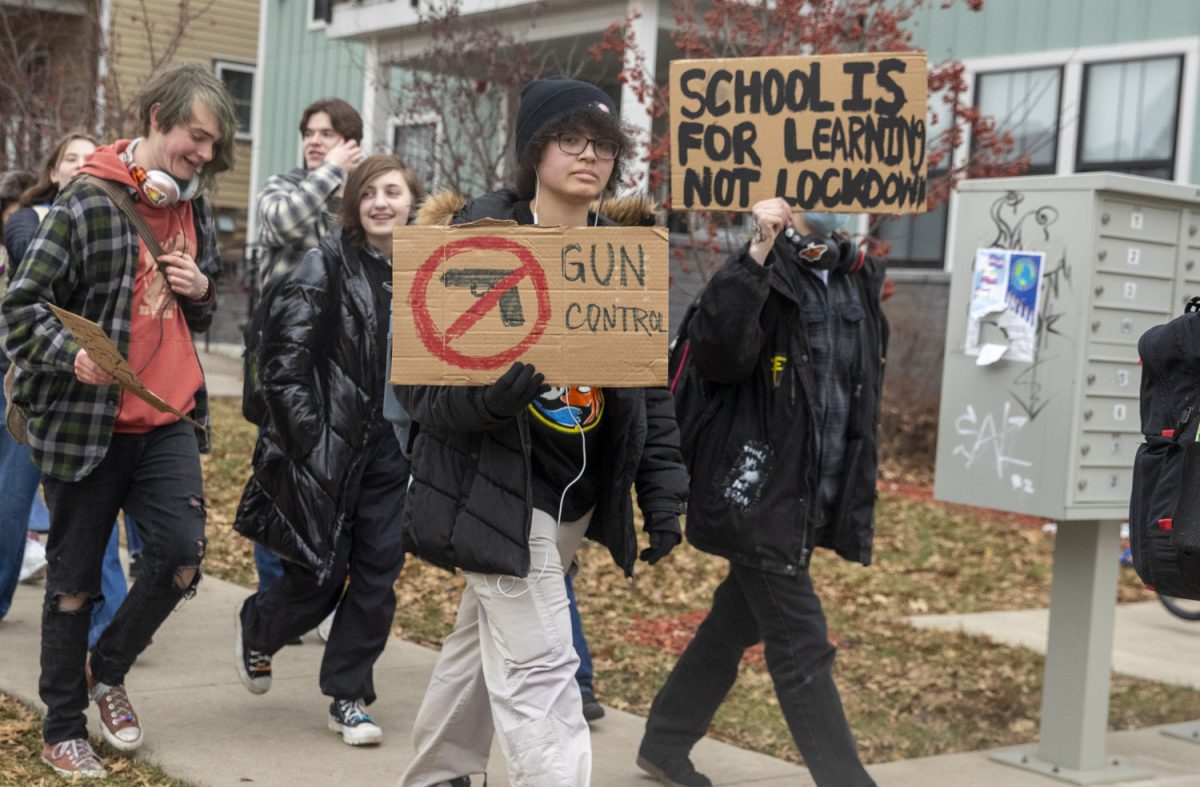On Monday night, several Daily Iowan Opinions columnists went to local caucuses and had very different takeaways from their experience.
Was it worth it?
I almost didn’t go to caucus. Amid the line trailing nearly from the entrance to Macbride Hall to Iowa Book, I stood among the clamoring huddles of shivering students waiting for their opportunity to participate in the celebrated tradition that is the Iowa caucuses, and I could only think: What’s the point? Admittedly, the fervor of caucus night was enough to spirit me away from my comfortable bed and into the cold to join my fellow politically active students, but the call of my apparent civic duty grew fainter as my ears grew colder.
I have always had difficulty reconciling the idea of patriotic duty with the life I know.
When you don’t need both hands to count the number of people who look like you in a packed auditorium, it’s hard to muster up faith in the idea that the caucus process is supposed to benefit you in some way. For fleeting moments, I allowed myself to indulge in the “Feel the Bern” chants and the general atmosphere of expectancy, but in the back of my mind the same little voice whispers in the pauses of the chorus. Don’t let me down. Don’t tease me.
I am from Washington, D.C., originally, and seeing firsthand just how deep the divide is between the everyday citizen and the monolithic institution of democracy that claims to represent them has robbed me of any type of idealism. Perhaps that is why I feel drawn to Bernie Sanders’ candidacy, and why I decided to stay and caucus in despite its futility that I would be eager to preach under any circumstance. I may be a hypocrite, but at a certain point you have to be when faced with the pessimist’s dilemma. Even when you’re right, you’re wrong.
It is hard to engage in a political process that prides itself on the importance of democracy and the participation of the individual with an underlying cynicism that stems from the idea that there is a disparity between the promises made and promises delivered on. However, if anyone else felt the same, they certainly didn’t show it. Caucus locations varied, and the one I was assigned was the same for all residence halls on the East Side campus. As a result, all but a few present at the caucus were students, and I have to admit it did help combat my chronic apathy toward politics in general.
At 6:30 p.m., I could have pulled my blankets tighter and continued to sleep comfortably in the certainty that not only did what was happening at the caucuses not involve me, but even if it did, my participation would be meaningless. It is this mentality that perpetuates the root of my cynicism. I don’t believe for a second that my presence was directly responsible for the results of the caucus. I’m right in thinking one individual vote cannot turn the tide of government, but what’s the point of being right when you aren’t getting what you want?
I don’t agree with the majority of what happens in the political world, but refusing to acknowledge, engage, and ultimately, try, gives power to everything about politics I resent. So it wasn’t my love of democracy or desire to Feel the Bern that brought me to my first Iowa caucus but rather the affirmation that, even if it was meaningless, I still tried.
— Marcus Brown
My first caucus, a Republican caucus at that
This was my first caucus. My location was based on my address, and I was sent to 166 IMU. I have to say that, compared with the Democratic caucus supporters and volunteers, there were not too many Republican supporters and volunteers directing their respective voters to caucus locations. There was a texting service for the Democratic caucus locations, while the Republican caucus locations only had a website (that worked quite poorly on mobile, I might add). When I finally reached the location, it was an easy process; everyone had already filed into the theater.
The room was full, and that was good to see that so many young people are involved in the democratic process. Some of the faces seemed familiar to me because I am still technically living in the dorms. Sprinkled throughout the crowd were older folks from the community and outside of state. The caucus event started with the Pledge of Allegiance, and that was fresh to be able to recite again. There were opening remarks from the temporary caucus head, who soon became the permanent caucus head. The position of caucus secretary was soon delegated. The donation folder was passed out and though it circled the entire crowd twice it still seemed quite light.
The floor was then opened up to caucus-attendees to lobby for the candidate of their choice and persuade the public to join their side. Through all of the presidential hopefuls, the only candidates who were supported were Ben Carson, Rand Paul, Marco Rubio, John Kasich, and Mike Huckabee. The first three speakers who volunteered, in their respective orders, were students, while the last two were older men. Meanwhile Jeb Bush, Chris Christie, Ted Cruz, Rick Santorum, Jim Gilmore, and Donald Trump did not have any volunteers to speak on their behalf. Actually, when Trump’s name was mentioned, there was an uproar of laughter.
When it was time to vote for the candidates, ballots were passed among the people and amid confusion about the number of ballots each person was to get, it soon became clear. After all the ballots were passed in, many soon left, though the event was far from over.
Soon, after all of the votes were in, it was time to pick the delegates. There was so much confusion throughout the three-fourths empty theater. The people who volunteered to speak for the candidates of their choice even had trouble figuring out the purpose of a delegate. The now permanent caucus head was also confused about the purpose of a delegate, and the packet that she was reading from did not specify that, either.
Next on the docket were platform issues. The ideas raised from those who were left in the theater align with the common themes surrounding the presidential race, though with a libertarian slant. The proposals ranged from the legalization of marijuana, reducing the national debt, health-care reform, education reform, and putting an end to bulk government spying. These proposals were adopted and are going to be forwarded to the country convention.
The votes were tabulated and the result was that Marco Rubio won the majority of that caucus’ votes.
— Keith Reed










